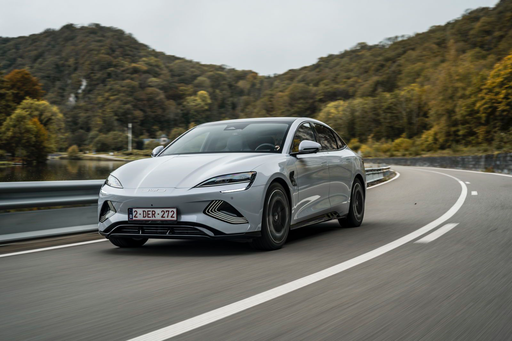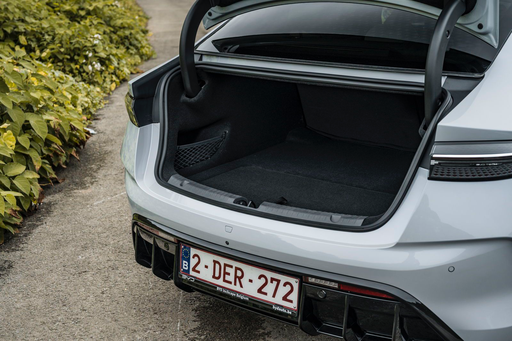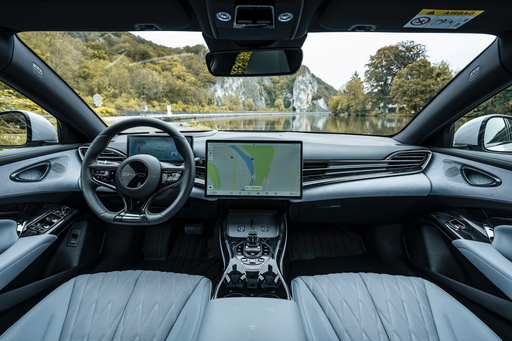BYD Seal vs Toyota Prius - Differences and prices compared
Compare performance (530 HP vs 223 HP), boot space and price (40300 £ vs 39400 £ ) at a glance. Find out which car is the better choice for you – BYD Seal or Toyota Prius?
Costs and Efficiency:
Looking at overall running costs, both models reveal some interesting differences in everyday economy.
Toyota Prius has a minimal advantage in terms of price – it starts at 39400 £ , while the BYD Seal costs 40300 £ . That’s a price difference of around 857 £.
As for electric range, the BYD Seal performs significantly better – achieving up to 570 km, about 484 km more than the Toyota Prius.
Engine and Performance:
Power, torque and acceleration are the classic benchmarks for car enthusiasts – and here, some clear differences start to show.
When it comes to engine power, the BYD Seal has a significantly edge – offering 530 HP compared to 223 HP. That’s roughly 307 HP more horsepower.
In acceleration from 0 to 100 km/h, the BYD Seal is convincingly quicker – completing the sprint in 3.80 s, while the Toyota Prius takes 6.80 s. That’s about 3 s faster.
In terms of top speed, the BYD Seal performs barely noticeable better – reaching 180 km/h, while the Toyota Prius tops out at 177 km/h. The difference is around 3 km/h.
Space and Everyday Use:
Beyond pure performance, interior space and usability matter most in daily life. This is where you see which car is more practical and versatile.
Both vehicles offer seating for 5 people.
In curb weight, Toyota Prius is slightly lighter – 1620 kg compared to 1907 kg. The difference is around 287 kg.
In terms of boot space, the BYD Seal offers clearly perceptible more room – 400 L compared to 284 L. That’s a difference of about 116 L.
When it comes to payload, BYD Seal noticeable takes the win – 473 kg compared to 375 kg. That’s a difference of about 98 kg.
Who wins the race?
The BYD Seal proves to be leaves the rival little chance and therefore becomes our DriveDuel Champion!
BYD Seal is the better all-rounder in this comparison.

BYD Seal
Costs and Consumption
View detailed analysis
Engine and Performance
View detailed analysis
Dimensions and Body
View detailed analysis
BYD Seal
The BYD Seal is a sleek electric fastback that punches above its class with sporty looks and a surprisingly premium cabin, offering a very modern alternative for buyers who want style and substance without the badge snobbery. On the road it feels composed and eager, packed with tech and everyday practicality—ideal for shoppers after eco-friendly performance with a cheeky wink.
details




Toyota Prius
The Prius glides through traffic like a wise commuter's secret weapon, balancing miserly running costs with an unflappable sense of reliability. It's not a thrill seeker, but its roomy cabin, sensible packaging and low-stress driving personality make it a brilliant choice for buyers who value peace of mind over pulse-raising performance.
details



Costs and Consumption |
|
|---|---|
|
Price
40300 - 45400 £
|
Price
39400 - 45800 £
|
|
Consumption L/100km
-
|
Consumption L/100km
0.5 - 0.7 L
|
|
Consumption kWh/100km
15.4 - 18.2 kWh
|
Consumption kWh/100km
-
|
|
Electric Range
460 - 570 km
|
Electric Range
72 - 86 km
|
|
Battery Capacity
-
|
Battery Capacity
-
|
|
co2
0 g/km
|
co2
12 - 17 g/km
|
|
Fuel tank capacity
-
|
Fuel tank capacity
40 L
|
Dimensions and Body |
|
|---|---|
|
Body Type
Sedan
|
Body Type
Hatchback
|
|
Seats
5
|
Seats
5
|
|
Doors
4
|
Doors
5
|
|
Curb weight
1907 - 2185 kg
|
Curb weight
1620 - 1630 kg
|
|
Trunk capacity
400 L
|
Trunk capacity
284 L
|
|
Length
4800 mm
|
Length
4599 mm
|
|
Width
1875 mm
|
Width
1782 mm
|
|
Height
1460 mm
|
Height
1470 mm
|
|
Max trunk capacity
-
|
Max trunk capacity
-
|
|
Payload
446 - 473 kg
|
Payload
365 - 375 kg
|
Engine and Performance |
|
|---|---|
|
Engine Type
Electric
|
Engine Type
Plugin Hybrid
|
|
Transmission
Automatic
|
Transmission
Automatic
|
|
Transmission Detail
Reduction Gearbox
|
Transmission Detail
CVT
|
|
Drive Type
Rear-Wheel Drive, All-Wheel Drive
|
Drive Type
Front-Wheel Drive
|
|
Power HP
231 - 530 HP
|
Power HP
223 HP
|
|
Acceleration 0-100km/h
3.8 - 7.5 s
|
Acceleration 0-100km/h
6.80 s
|
|
Max Speed
180 km/h
|
Max Speed
177 km/h
|
|
Torque
360 - 670 Nm
|
Torque
-
|
|
Number of Cylinders
-
|
Number of Cylinders
4
|
|
Power kW
170 - 390 kW
|
Power kW
164 kW
|
|
Engine capacity
-
|
Engine capacity
1998 cm3
|
General |
|
|---|---|
|
Model Year
2023 - 2025
|
Model Year
2023
|
|
CO2 Efficiency Class
A
|
CO2 Efficiency Class
B
|
|
Brand
BYD
|
Brand
Toyota
|
What drive types are available for the BYD Seal?
The BYD Seal is available as Rear-Wheel Drive or All-Wheel Drive.




